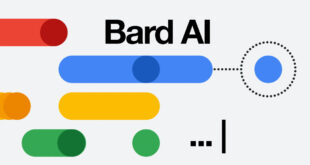Sodium Regulates Circadian Clock in Mice, New Study Shows
A new study published this week in the journal Nature shows that injecting mice with a salt solution (hypertonic saline) leads to the activation of neurons associated with the suprachiasmatic nucleus, the brain’s master circadian clock.
The suprachiasmatic nucleus of a mouse. Image credit: McGill University.
Our circadian clock, or circadian rhythm, adapts our body’s cells and organs to changing requirements at different times of day.
Prolonged disruption of circadian rhythms because of jetlag or shift work can lead to adverse health effects.
Though it is well established that light is the primary factor regulating our body’s circadian clock, it was unknown if or how physiological factors could regulate the suprachiasmatic nucleus.
“Our study is the first to show that the suprachiasmatic nucleus is listening to physiological signals, and that such signals can in fact regulate clock time,” said senior author Professor Charles Bourque, a researcher at the Research Institute of the McGill University Health Centre.
Professor Bourque and McGill University PhD student Claire Gizowski were able to show that salt-sensitive neurons found in a specific region of the brain — the organum vasculosum of the lamina terminalis — are capable of activating the circadian clock at a time of day when it is normally silent.
“This suggests that there could be ways by which we could speed up the clock, which could be useful to adapt more quickly to the time change associated with long distance travel, or when our work schedule is shifted by several hours,” Gizowski said.
The researchers now hope to establish if natural increases in blood sodium levels — through eating — have the same effect and whether or not these also occur in humans.
“One concern is that although ingestion of small amounts of salt is pleasant and not dangerous, it can be toxic when consumed in large amounts,” Professor Bourque said.
“Much more work is needed to examine if this finding is applicable to humans in a safe and practical way.”
_____
C. Gizowski C.W. Bourque. Sodium regulates clock time and output via an excitatory GABAergic pathway. Nature, published online July 8, 2020; doi: 10.1038/s41586-020-2471-x
 #Bizwhiznetwork.com Innovation ΛI |Technology News
#Bizwhiznetwork.com Innovation ΛI |Technology News




